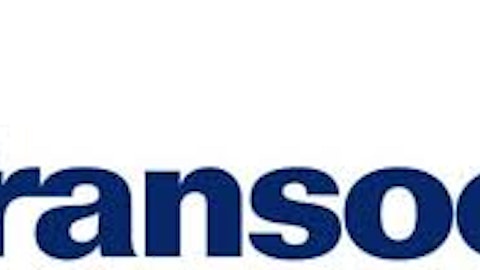The first and third of these queries coalesce at the point where one considers that, at the conclusion of the fourth quarter of last year, the company’s debt was a whopping $12.2 billion. That made for a debt-to-capitalization ratio north of 40%. Another obvious ministration for this condition, in addition to selling off properties, is a reining in of drilling activity.
A couple of sales
As to the second issue, we already know that earlier this month 57,275 net acres and 11 producing wells in the Woodbine and Eagle Ford were sold to privately held Energy & Exploration Partners of Fort Worth. As a Texan, I find it noteworthy that the assets involved included the Woodbine sandstone, the Eagle Ford Shale, and Lower Cretaceous formations with such readily identifiable Lone Star monikers as the Buda, Georgetown, Edwards, and Glen Rose.
Earlier, the company had pocketed $75.2 million by selling to Gastar Exploration Ltd (NYSEMKT:GST) leasehold acreage in Oklahoma’s Kingfisher and Canadian counties. It’ll obviously require a passel of sales of that magnitude to shore up an overweight balance sheet.
As to the company’s leadership and direction, last month it was announced that an “Office of the Chairman” has been formed at Chesapeake. The new entity is made up of Archie Dunham, the non-executive chairman of the board, Steven Dixon, the acting chief executive officer (and continuing chief operating officer), and CFO Domenic Dell’Osso. The company’s board of directors is continuing to work with Heidrick & Struggles in the search for a permanent CEO-replacement for McClendon.
A rising stock in the offing?
It shouldn’t be overlooked that Chesapeake Energy Corporation (NYSE:CHK) accumulated its imprudent debt level by rounding up some of the nation’s most attractive shale acreage. On that basis, amid rising natural gas prices, the nation’s second-largest gas producer — after Exxon Mobil Corporation (NYSE:XOM) — could see its literal and figurative stock rise. I admittedly make that statement as one who has a position in the company.
The article Chesapeake’s Now Just a Plane Company for McClendon originally appeared on Fool.com and is written by David Smith.
Motley Fool contributor David Smith owns shares of Chesapeake Energy. The Motley Fool owns shares of Devon Energy (NYSE:DVN) and has the following options: Long Jan 2014 $20 Calls on Chesapeake Energy, Long Jan 2014 $30 Calls on Chesapeake Energy, and Short Jan 2014 $15 Puts on Chesapeake Energy.
Copyright © 1995 – 2013 The Motley Fool, LLC. All rights reserved. The Motley Fool has a disclosure policy.



